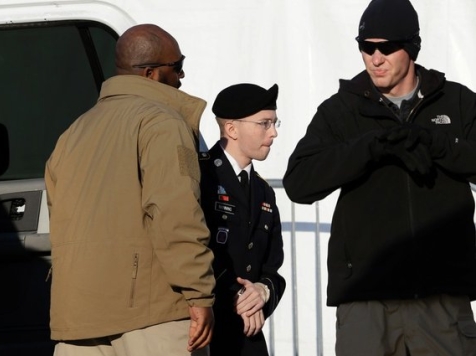
On December 3rd, David Coombs, the civilian defense attorney for Bradley Manning, gave his first public speech on the case to an audience at All Souls Church Unitarian in Washington DC, in which he called the treatment of Manning “criminal.”
“Brad’s treatment at Quantico will forever be etched in our nation’s history as a disgraceful moment in time. Not only was it stupid and counter-productive, it was criminal,” Coombs told the audience in his speech, which was frequently interrupted with applause and began and ended with a standing ovation.
Manning himself took the stand last week to speak publicly for the first time since his 2010 arrest. A military judge will continue to hear testimony from both sides this week to determine whether Manning’s treatment during his nine months of confinement at Quantico amounted to “unlawful punishment.”
Manning was eventually transferred to Fort Leavenworth, Kansas in April 2011.
Retired Marine Corps colonel Daniel Choike testified that Manning arrived at Quantico already under a suicide watch, after being transferred from Kuwait.
In testimony Wednesday, Chief Warrant Officer 5 Abel Galaviz, the Marine Corps’ top correctional administrator, said that brig officials used an unapproved form when making their recommendation that Manning be held in maximum custody. Galaviz testified that such a decision made by the brig commander — Chief Warrant Officer 4 James Averhart — was justified, regardless.
A former Marine Corps brig supervisor, Master Sgt. Brian Papakie, testified Wednesday that Manning’s history of depression put him at risk.
An earlier witness for the government, Marine Corps Master Sgt. Craig Blenis, also testified that Manning’s gender-identity disorder — which Manning revealed in a letter that he’d signed as “Breanna Manning” to a supervisor — was cause for concern and extra precautionary measures for prevention of injury.
There has been much criticism from the defense that the government had been more concerned about its appearance to the media than it was for Manning’s well-being. Indeed, emails obtained by the defense revealed that brig officials seemed especially concerned about the international media attention on this particular case.
But testimony from the prosecution indicated that officials were sensitive to the fact that another prisoner, Marine Capt. Michael A. Webb, committed suicide there while awaiting court-martial the previous December.
Previous testimony from Captain William Hoctor, a psychiatrist who treated Manning while he was held in custody at Quantico, noted that brig officials appear to have ignored or overruled his recommendations. Hoctor initially recommended that Manning be put on suicide watch, but later changed his opinion of Manning’s condition.
But within a week of seeing Manning he changed his recommendation, reporting to officers that in his medical opinion the soldier could be put on the lesser PoI [prevention of injury] status. His advice was ignored for a couple of weeks, Hoctor told the court. “At Quantico they often did not immediately follow, or sometimes did not follow at all, my recommendations.”
Evidence presented during the hearing has not indicated that such decisions of brig officials or their treatment of Manning was vindictive. The prosecution maintains that the government was especially concerned for Manning’s safety, given all of the collective circumstances.
Should the defense be successful in proving its argument, it hopes to have Manning’s charges dropped — a scenario that military legal experts indicate is unlikely.
In lieu of a dismissal of charges, Manning’s defense will request 10-for-1 credit for 258 days of what it maintains was “unlawfully harsh pre-trial punishment” during the nine months Manning was held in confinement at Quantico.

COMMENTS
Please let us know if you're having issues with commenting.